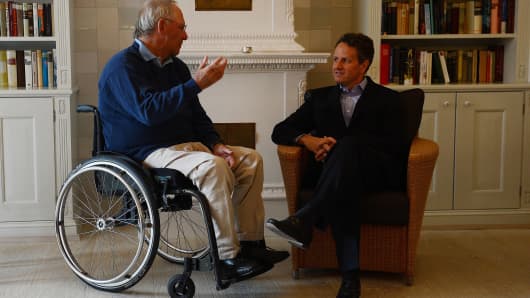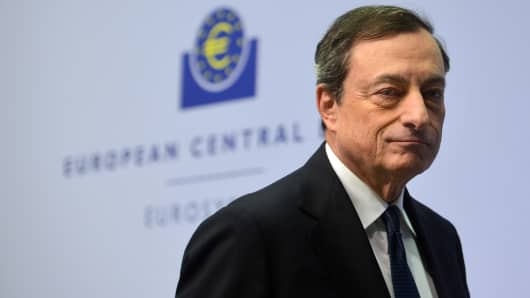That is a hard blow to French efforts to enlist Germany in its project of an "autonomous European security structure."
The French media also see more trouble for their young and enthusiastic president. Berlin apparently is not ready to cooperate in what it considers to be new, expensive and unnecessary layers of European bureaucracy to implement proposals of euro area reforms submitted by the French government last year.
Does that mean that the European Union and the euro area will soon be falling apart?
Not at all. The anti-EU forces are in retreat everywhere. Even the erstwhile Euro-skeptics among the key contenders for power in Italy's elections on March 4 are now all pro-European, the only qualification being that they would not submit to any German hectoring.
How about the economic and financial developments? Do they offer reasonable euro-asset shorting bets?
I don't see that either. Here is why.
The monetary union's growth dynamics have rarely been better since the euro was adopted as a single currency on January 1, 1999. In the third quarter of last year, the euro area GDP grew at an annual rate of 2.6 percent. The only growth rates of 3 percent, or slightly above, were recorded in 2006 and 2007, but that will probably be matched when the data for the euro area's fourth quarter get in.
The employment picture looks good, too. The euro area jobless rate eased to 8.7 percent at the end of 2017, down from a 12 percent peak in 2013, with shortages of skilled labor noted in Germany and France.
Problems of public finances? Yes, gross government liabilities in the euro area were estimated at 107 percent of GDP last year. That is very far from the objective of 60 percent of GDP, but that is still sharply down from 112 percent of GDP observed in 2014. Apart from that, high-debt countries like Greece, Italy and Portugal are running primary budget surpluses (budget balances before interest charges on public debt) ranging from 2.4 percent of GDP (Italy) to 6.7 percent of GDP (Greece) — which means that debt liabilities are stabilizing on a declining trend.
All those high-debt euro area countries are under pressure to balance their budgets over the next two years. I believe most of them will do it because, at the moment, only Spain and France are running deficits of more than 2 percent of GDP.
How about contingent liabilities from banking sector problems? As far as I know, speculations about serious difficulties on that score are focusing on only one euro area country, where government bailouts, if allowed by the euro area regulations, could trigger public debt issues.




